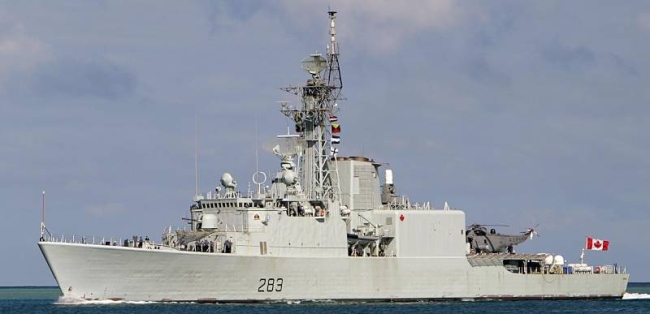WASHINGTON — How U.S. Northern Command balances its assets in protecting the homeland is a matter of gauging the probability and potential consequences of threats, the new Northcom commander said today.
“We have to look at the capabilities and intent” of U.S. adversaries, Navy Adm. James A. Winnefeld Jr. told reporters during a Defense Writers Group meeting here. “Certainly there are nations with cruise missiles who we don’t think have any intention to use them. Then, there are terrorist organizations that certainly want to use them that don’t have the capability.”
Russia has the capability to perform such an attack but not the intent, whereas Iran and North Korea have shown intent, but evidence indicates they lack the capability, he said. Winnefeld, who also commands the North American Aerospace Defense Command, added that he is confident in the U.S. missile defense system, including ground-based capabilities to stop an attack.
“I’m very comfortable right now that if you asked me to shoot down a missile at this moment from North Korea or Iran, I could do it,” he said.
Northcom and U.S. Strategic Command leaders “have a pretty clear understanding” of why the ground-based system failed a test last year, Winnefeld said. He declined to discuss specifics, other than to say that it is difficult to test a system that is still being developed.
“The operational reality we work with every day is that while we’re fielding a system, we’re also testing it,” he said.
Asked about the probability of a nuclear terrorist attack, Winnefeld said he could not speak to intelligence gathered on the issue, but “as Northcom commander, I have to assume the threat is not going down.”
Any nuclear attack would be catastrophic, and prevention is the key, the admiral said.
“One of my most important focus areas is to be prepared for it,” he said. “No one should have any illusions about how challenging that would be for the nation. The most important thing is to prevent it from happening in the first place, and to be prepared for it to happen.”
Northcom and NORAD are in good coordination with the Homeland Security Department, National Guard Bureau and state officials to ensure quick responses, Winnefeld said. “I’m very optimistic that we are headed in the right direction there,” he said.
Winnefeld said he also is working closely with Army Gen. Keith Alexander, who recently was confirmed to head the new U.S. Cyber Command, to determine where responsibilities lie in the event of a major attack against computer networks. Northcom likely would work in support of Cybercom and its parent command, Stratcom, he said.
“It really doesn’t matter, as long as we’re working closely together so that cyber recovery is coordinated,” Winnefeld said. Most importantly, he said, “This has to be done with speed. This is a mission that is very critical and time-dependent.”
An important part of the Northcom commander’s job, Winnefeld said, is to try to predict threats and how to counter them. To that end, he said, he is considering the potential need for a lighter, lower-flying aircraft than the current F‑15 to handle certain contingencies, such as those at large, outdoor events.
“It’s all about the time, distance and area we can cover,” he said. “We can’t cover a great, big country 100 percent of the time.”
On another topic, Winnefeld called the U.S. military partnership with Mexico a top priority for Northcom and said the command has a “solid, courageous, and sovereign partner” in Mexican President Felipe Calderon’s government to counter Mexican drug cartels.
The threat to the United States from the cartels “is very serious,” Winnefeld said, but he added that his main worry isn’t about violence coming across the border.
“It’s really more the slow, corrosive impact that drug cartels … have on our own society and cities that is really the boiling frog here,” he said, as opposed to the “rare, but tragic” violence that occurs along the southern U.S. border.
Northcom is doing everything it can to help the Mexican military, the admiral said, from advancing their capabilities to sharing subject-matter experts and providing human rights training.
“They are voracious devourers of that kind of training,” he said. “They really want to get it right, and they realize it’s going to take time to get it right.”
The admiral said he is encouraged by the sustained effort of the Mexican government to stand up to the cartel problem. “It would be very easy for them to back off on the cartels,” he said, “and violence probably would go down.”
Source:
U.S. Department of Defense
Office of the Assistant Secretary of Defense (Public Affairs)

 von
von 